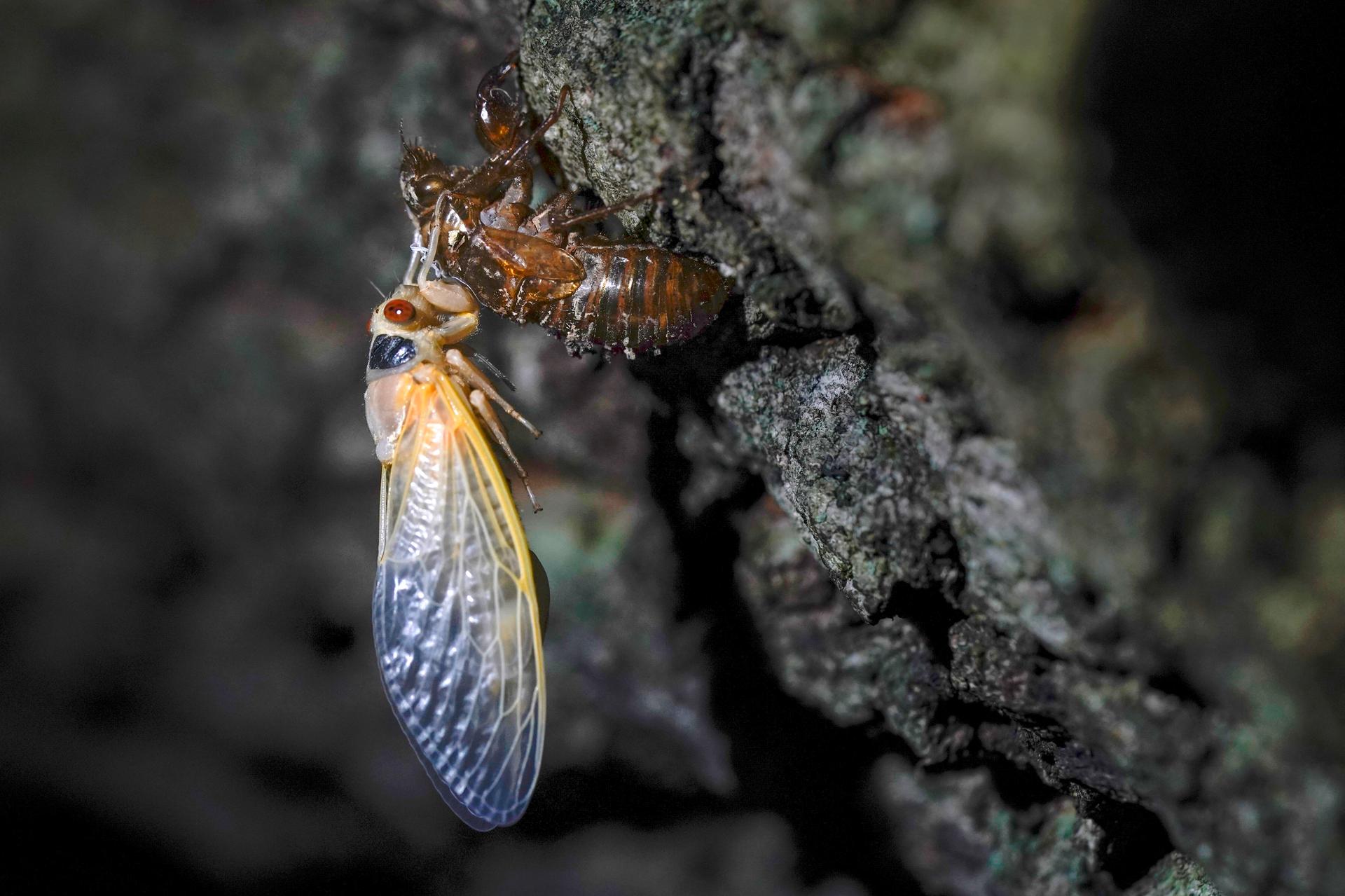Eating cicadas isn’t just for the birds. They’re also perfectly edible for humans.
With a soft body and thin exoskeleton, cicadas are similar to shrimp — so similar, in fact, that people with shrimp allergies are often allergic to cicadas, as well.
Joseph Yoon, chef and founder of Brooklyn Bugs, which specializes in insect cuisine, says pound for pound, most insects, including cicadas, offer more protein and nutrients than meat. Plus, they require far less food and water than raising livestock and they produce only a fraction of livstock’s greenhouse gas emissions.
“A lot of people think that insects are all crunchy and stuff, but these are actually really juicy with a very thin layer of exoskeleton. So it’s really a delicacy.”
“Right now is the nymph season and these guys are just a delicacy,” Yoon says. “When you open them, they’ve been gorging on tree and plant sap for 17 years, so they’re just full of fat and muscle tissue. A lot of people think that insects are all crunchy and stuff, but these are actually really juicy with a very thin layer of exoskeleton. So it’s really a delicacy.”
Most people don’t know what insects taste like and automatically think they’re going to taste gross, Yoon says. But he encourages people to keep an open mind because some insects are really neutral in taste and will absorb much of the flavor they are cooked in.
Related: What’s for dinner? Edible insects on the menu in San Francisco
“So, if you were to cook with aromatics and add onions and garlic and ginger and peppers, a lot of time that’s what it’s going taste like, with the little umami, earthy nuttiness, that the insects will have, as well,” he explains.
Because cicadas are such a spring specialty that happens only once every 17 years, Yoon enjoys using them to create a unique rice bowl.
“We want to build a lot of flavor and so what we have is half an onion, some carrots and garlic, asparagus, red peppers, and so these will be fried up along with the cicada nymphs and bring a ton of flavor to it.” “The beautiful thing about this sort of black rice is that it has a lot more nutrients and it has this incredible, nutty and fruity flavor to it. … It’s just really so beautiful, the flavor that it packs in there.”
Yoon also likes to add another specialty from the spring and summer: a cricket, ramp (wild leak) kimchi with chili pepper, Korean gochu pepper, perilla leaves, minari and some chrysanthemum.
“I use cricket powder to thicken the kimchi paste instead of using a glutinous rice flour, and so it adds both flavor and serves a wonderful function,” he adds.
Yoon’s special dish not only uses cicadas, which are so abundant at this one specific time, it also uses asparagus, which is in season this time of year, and greens people can find in specialty markets.
“It really is a celebration [of the season] and I hold such a great value to the cicadas lives, the sanctity of their lives. So it’s not something that I do flippantly…”
“It really is a celebration [of the season] and I hold such a great value to the cicadas lives, the sanctity of their lives,” Yoon says. “So it’s not something that I do flippantly, collecting them for some novelty, but we are really trying to find solutions for how we can reinterpret, reimagine, re-understand insect protein. So this presents like a wonderful opportunity for me…”
Related: This start-up turns locust swarms in Kenya into animal feed
And if you find yourself inundated with cicadas about now, but fresh out of cricket kimchi, Yoon suggests simply adding cicadas to any dish you already enjoy, like pasta sauce, a stir fry, or a casserole.
This article is written by Adam Wernick based on an interview that aired on Living on Earth from PRX.
